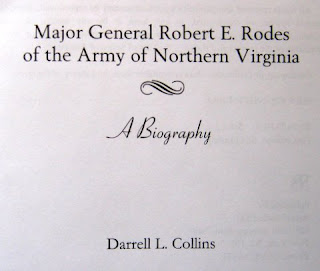One of the more interesting exercises
connected with scenario design is the characterization of leaders. This is
generally a requirement of rules’ sets, and if the scenario is “historic,”
getting the characterizations right is important. Of course, the process is
complicated by the fact that most historic leaders had their good days and
their bad days (that is, splendid and not so much – think of “the” Stonewall
Jackson of the Seven Days for a couple inexplicably bad days by a military
colossus). Then too, there were others who were truly great at lower command
levels but ineffective or worse at higher levels (for example, John Bell Hood –
the epitome of the Peter Principle). Colonel, later Gen. Robert E. Rodes is an
example of an enigmatic historic leader. As he figures in several of the scenarios
I’ve been working up, I had to get a handle on him. Following is a list of
biographical references for Rodes. I’ve only seen the first, which I consider
sufficient, but I expect I’ll get around to the others.
Collins, Darrell L. Major General Robert
E. Rodes of the Army of Northern Virginia: A Biography. New York: Savas
Beatie, 2008.
Newton, Steven H., William Garrett Piston,
Keith Poulter, Steven E. Woodworth, and Gregory J. W. Urwin. 2009. “Overrated
Generals.” North & South : The Official Magazine of the Civil War
Society. 11, no. 6: 14-22.
Covers: Philip Henry Sheridan; John Brown
Gordon; James Birdseye McPherson; Joseph Wheeler; James Harrison Wilson;
William Joseph Hardee; Joseph Hooker; Joseph E. Johnston; George Gordon Meade;
Nathan Bedford Forrest; George Henry Thomas; John Singleton Mosby (not a
general, of course); George Crook; Wesley Merritt; G. T. Beauregard; John Hunt
Morgan; Franz Sigel; Robert Emmett Rodes; Winfield Scott Hancock; George A.
Custer; John Alexander Logan
Swisher, James K. Warrior in Gray:
General Robert Rodes of Lee's Army. Shippensburg, Pa.: White Mane Books,
2000.

No comments:
Post a Comment
Note: Only a member of this blog may post a comment.